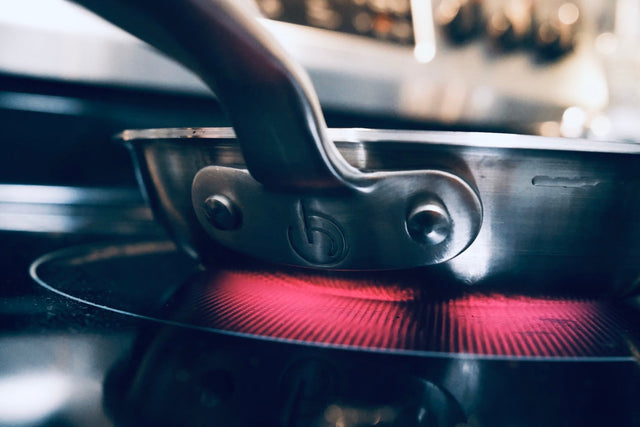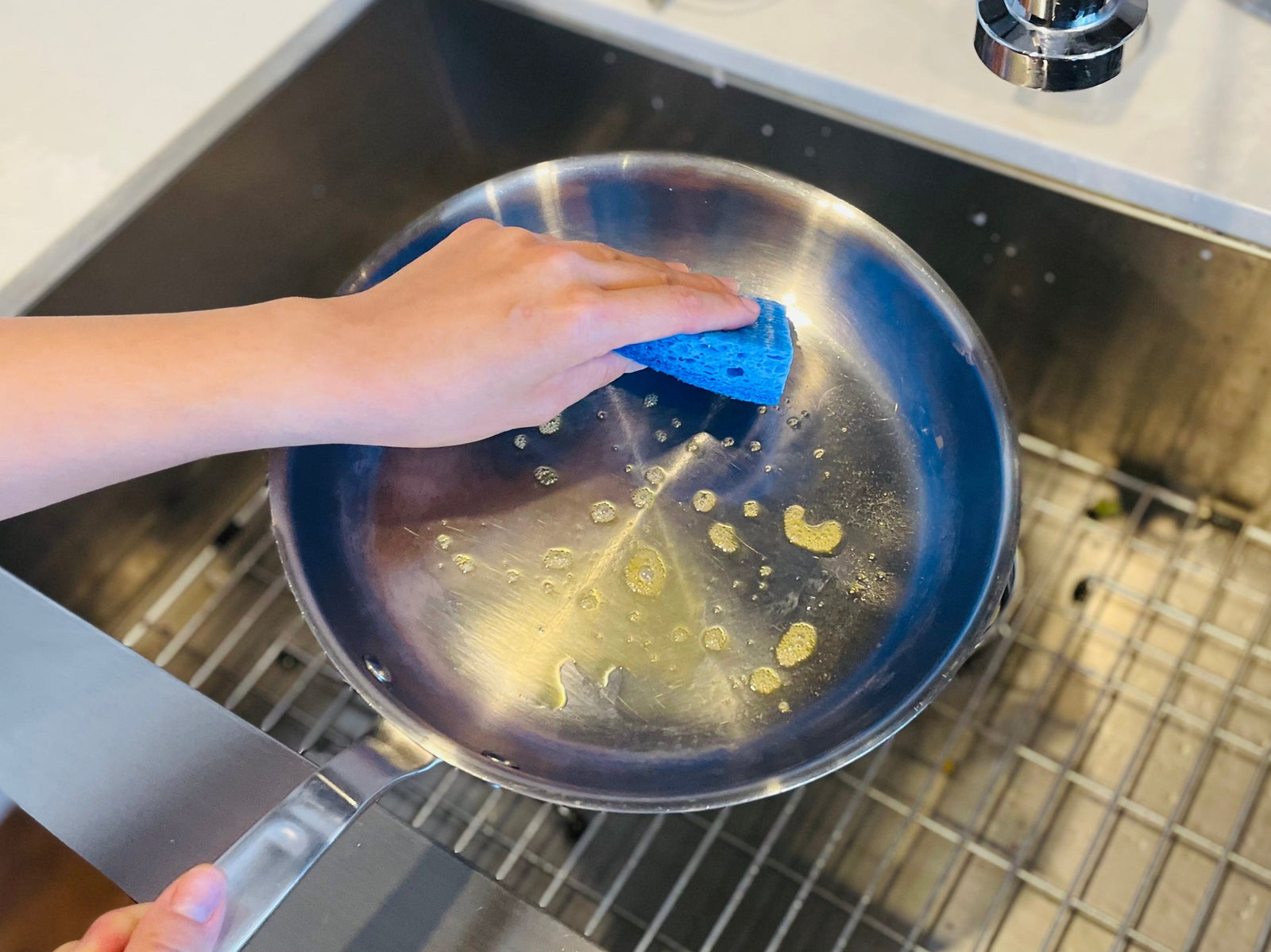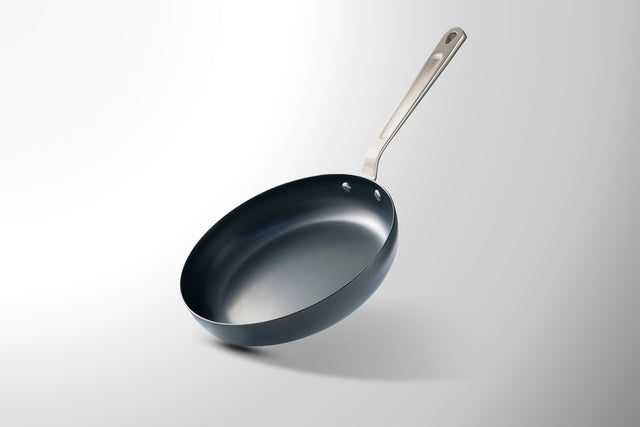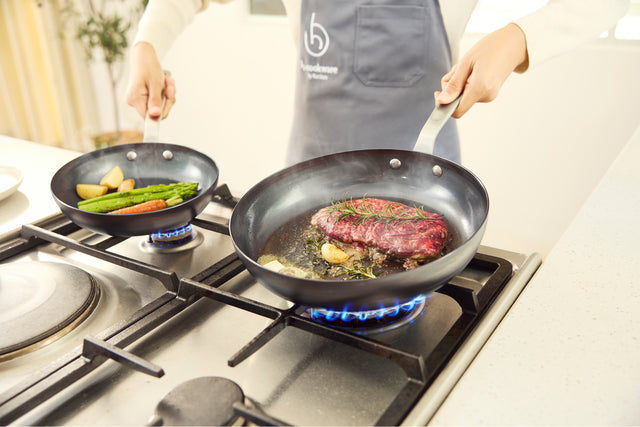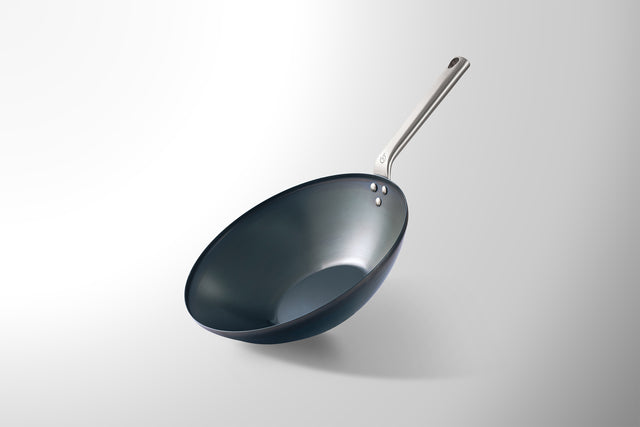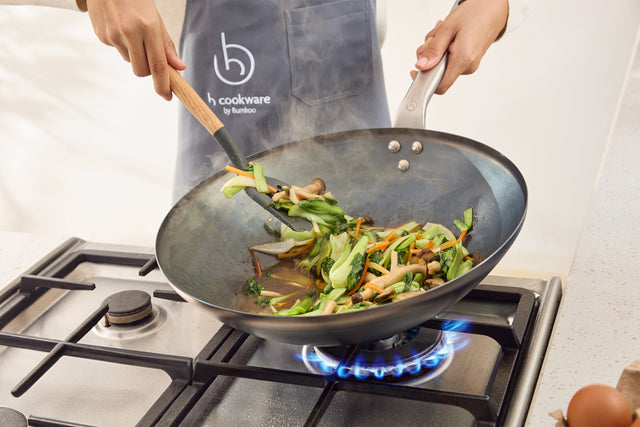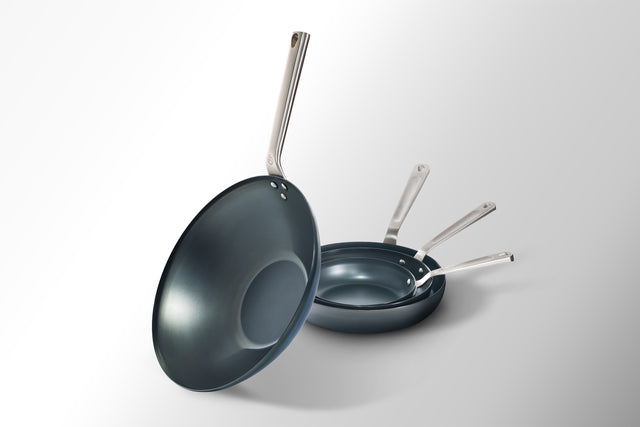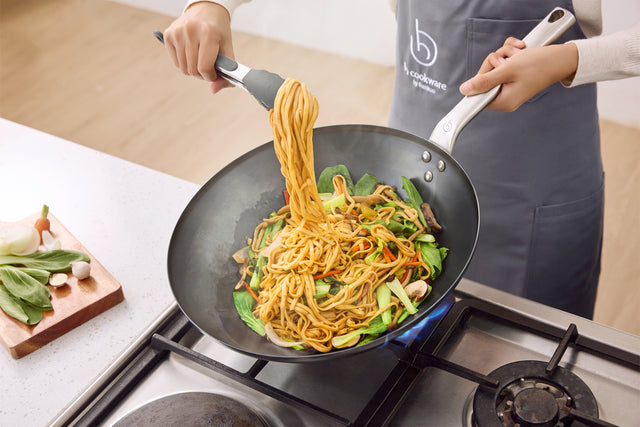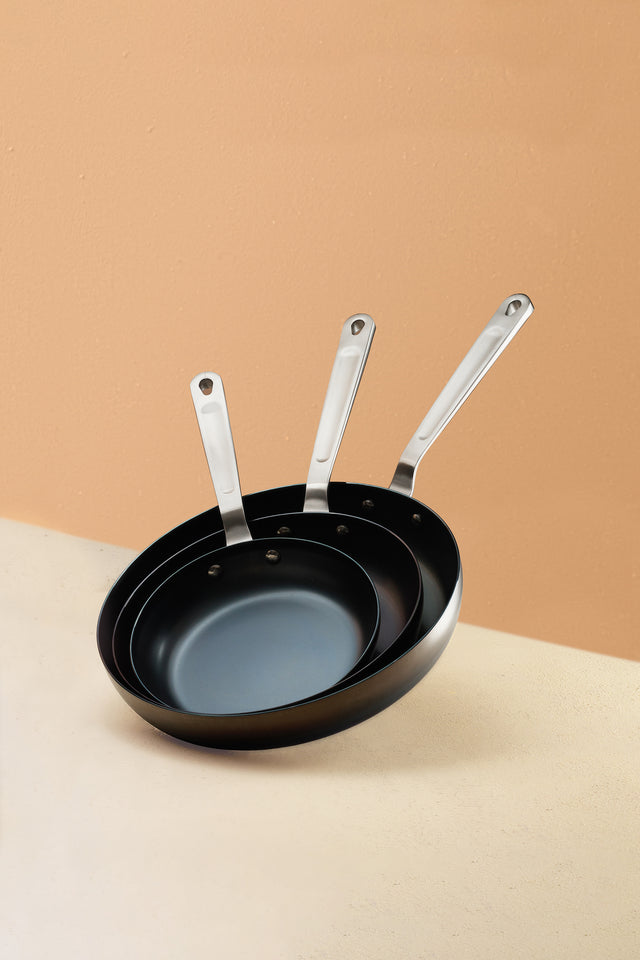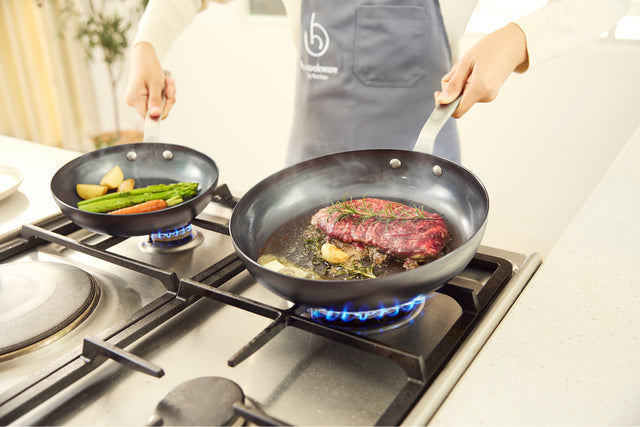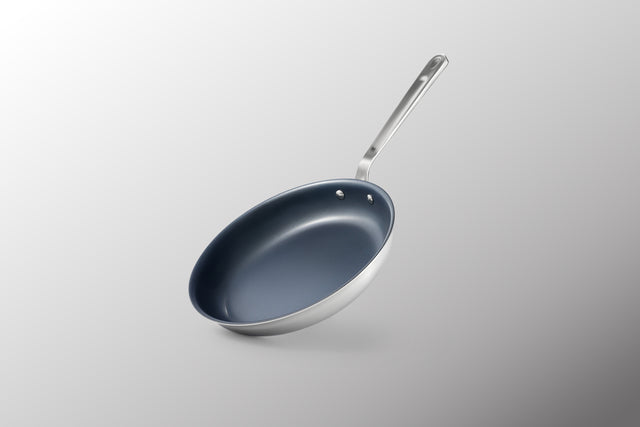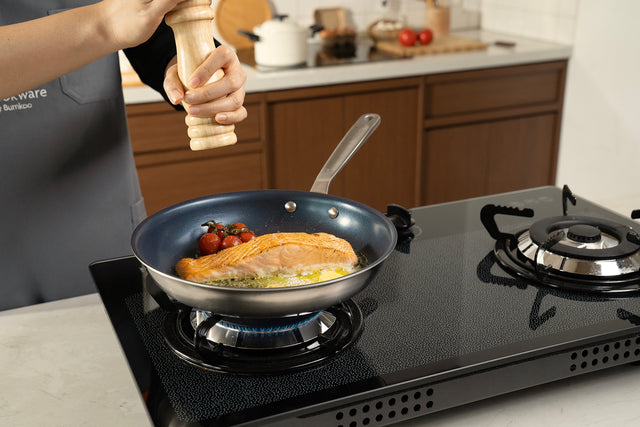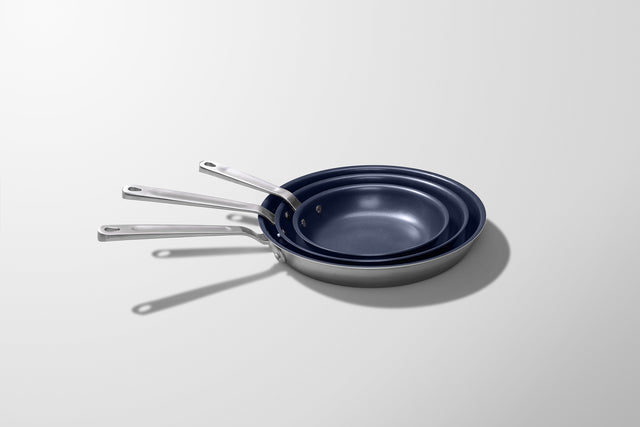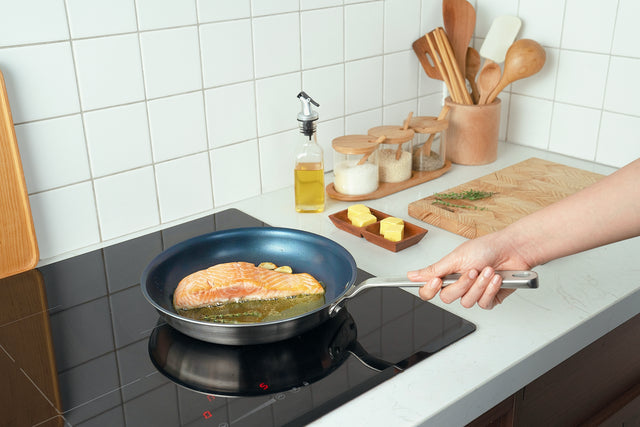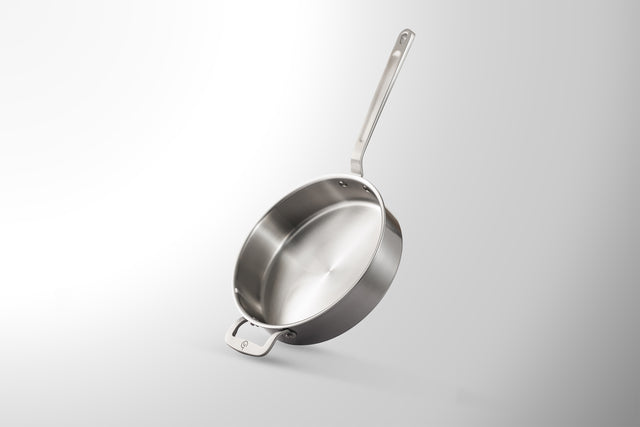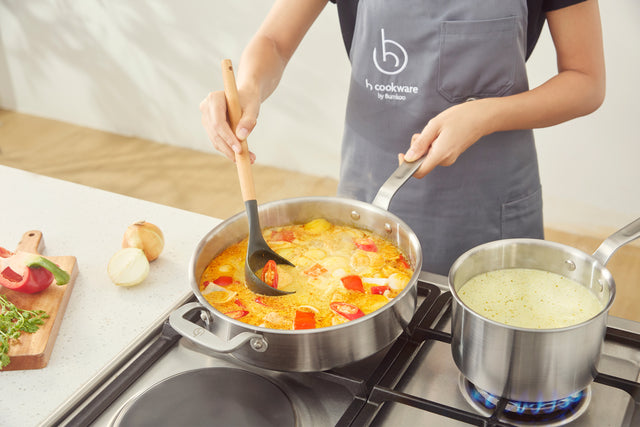Let It Cool
You never want to run cold water on a hot pan. This may cause the pan to warp. After you cook, let the pan cool to room temperature. While you wait, you can wipe the pan clean from oils and butters to prevent clogging in your sink drain. Or you can deglaze the pan after searing with wine or stock, then let cool, and save the liquid for later cooking.
Hand Wash
We do not recommend using a dishwasher due to harsh chemicals. Rather, wash the pan with warm water, soap and a sponge or dish rag. For more difficult areas, you can use the back of a sponge or scotch brite pad. Dry your pan with a rag and it is ready for use.
Tough Stains
For hard to remove food or stains, put water in the pan and heat low to medium, and then scrap with a wooden spoon. If that does not work, soak your pan in water overnight and then use soap and a sponge to clean. You may also try diluted vinegar or a stainless steel cleaner. Avoid using steel scouring pads, steel wool or abrasive cleaner or bleach.
Nonstick Pan
Follow the same rules as stainless steel clad to Let It Cool and Hand Wash and Tough Stains. We recommend using mild dish soap for nonstick surfaces. Do not use scotch brite pad, scouring pads, vinegar or any abrasive cleaner to clean your nonstick pan. This can ruin the nonstick coating for future use. After cleaning, dry the pan with a towel and store away. Be careful not to stack the nonstick pan without placing a cloth in between the pans as this can scratch and damage the coating.
Rainbow Stains
Rainbow colored stains on your stainless steel pans are natural and are a result of high temperatures, chromium, and air mixing to form an oxidized layer. This layer can build and result in a rainbow color. This is harmless and you can do nothing. To remove the stain, you can dilute white vinegar with water and splash a little into your pan, and clean the area with a non abrasive sponge. Rinse and dry, and you are done.
More stories
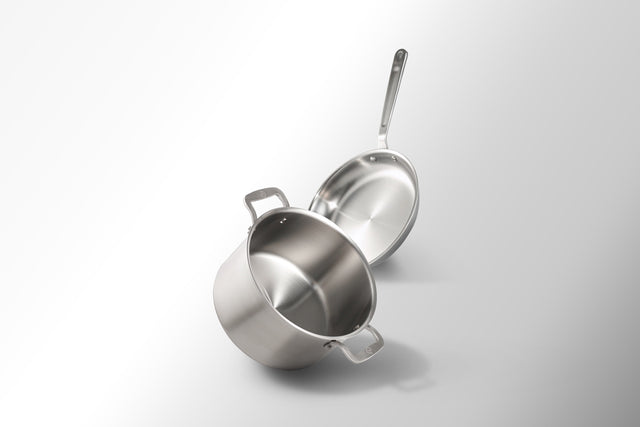
Stainless Clad: FAQ
